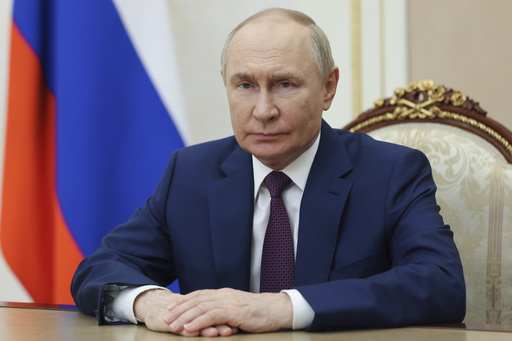A national leader faces persistent and complex challenges stemming from the escalating aggression of a determined foreign power. Despite repeated attempts at dialogue and the expression of optimism regarding de-escalation, the reality has consistently shown that this assertive entity has no intention of altering its course unless compelled by significant external pressure. This ongoing situation highlights the critical need for robust and decisive countermeasures to safeguard national interests and stability.
The administration has observed that diplomatic overtures alone have proven insufficient in compelling a shift in the antagonist’s behavior. Initial hopes for a diplomatic resolution have repeatedly met the stubborn reality of an adversary seemingly committed to its expansionist agenda, necessitating a strategic re-evaluation of available influence levers. This persistent defiance underscores the urgency of implementing more forceful instruments of statecraft.
One compelling presidential policy option currently gaining significant traction involves leveraging a broad legislative measure. This proposed bill, boasting substantial bipartisan support across the political spectrum, aims to impose stringent secondary tariffs on goods imported from nations that have directly or indirectly supported the foreign power’s destabilizing activities. Such a measure represents a powerful tool in the arsenal of economic sanctions designed to alter the calculus of foreign actors.
This legislative strategy provides a potent mechanism for influencing the behavior of not only the primary aggressor but also any states facilitating its actions. By creating tangible economic disincentives, the policy seeks to undermine the financial foundations supporting the continued aggression, thereby forcing a reconsideration of current foreign policy trajectories. The breadth of its sponsorship underscores a unified national resolve to address this international challenge.
The proposed tariffs are designed to exert substantial financial pressure, making it economically unfeasible for third-party nations to continue their support. This indirect approach aims to isolate the belligerent power by disrupting its supply chains and financial networks, effectively cutting off crucial resources. Such economic coercion is a recognized method within foreign relations to achieve strategic objectives without direct military confrontation.
Implementing such a comprehensive economic framework requires careful consideration of its ripple effects across the global economy. However, proponents argue that the long-term benefits of curbing destabilizing behavior far outweigh potential short-term disruptions. This proactive approach signifies a commitment to protecting international norms and ensuring the security of allied nations through non-military means.
The successful deployment of this legislative tool could establish a new precedent in international politics, demonstrating that collective economic pressure can be an effective deterrent against aggression. It sends a clear message that supporting hostile actions carries significant financial consequences, encouraging a more responsible approach to global engagement from all state actors involved.
Ultimately, this comprehensive geopolitical strategy represents a pivotal moment for the administration to demonstrate its resolve and capacity to protect vital interests. It underscores the conviction that sustained, concerted economic pressure is not merely an option but a necessary step to compel a change in the international landscape and restore a semblance of order and predictability.
The ongoing debate surrounding these measures highlights the complexity of modern international relations and the innovative approaches required to navigate them. By adopting a firm stance through economic instruments, the nation can effectively address the persistent challenges posed by an unyielding adversary, ensuring long-term security and stability on the global stage.






Leave a Reply